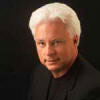“Let’s go with what we know will work,” followed by the minions appending, “well, he/she has the courage of their convictions.” Coming from a military perspective inflexible attitude is a warning sign of weakness in a general, not strength. And today in radio much vapid posturing takes place on a daily basis. A competitor cuts spot rates and management retorts, “They know what their product is worth.”
Or, a program director suggests attacking a competitor based on sound criteria but management says, “We believe in taking a positive approach, in selling our format on its merit, not in denigrating our competitor’s format.” Sometimes this thinking is also mistaken for strength.
Here’s a news flash: a great general has no built-in biases. A great strategically-grounded programming executive has no cut-and-paste, set-piece competitive boundaries; he or she will consider multiple points of view from trusted staff colleagues, and then make a decision. As history flows, early in the Civil War Lincoln entrusted his commanding generalship to George McClelland. He was a fine little organizer who drew perfect maps, war-gamed perfect scenarios, and then analyzed them multiple times. The problem was, McClelland never seemed to find his way to the battle line; paralysis by analysis. Finally Lincoln decided he would appoint a tough rough-hewn cigar smoking, whiskey drinking field commander who weighed the facts as he knew them, considered his best strategy to surprise and decimate his opponent, then shoved-off! Ulysses Grant changed the entire face of the war between-the-states that included ultimately accepting General Lee’s surrender.
In media today, it’s this flexibility of mind that can terrorize your competitors’ camp. They never know when or where the next blow will strike; an imaging campaign, a stealth promotion, a difference-maker talent. These Clausewitzean traits are often missing in corporate executives who have only learned how to imitate a battle face or talk in macho vernacular; quick to defend poor decisions or no decisions at all. No, what really separates a good leader from a mediocre one is the type of courage they display under duress or when faced with a great opportunity. The best leaders I’ve known are the internally inspired people who know when it’s time to end the what-if analysis, choose the direction that will inflict the most change in the target market, and like Grant, just shove-off.
“Boldness becomes rarer, the higher the rank,” said Clausewitz, (or the nearer to retirement, or the greater the number of shares in the stock option plan). Leaders who know only a few “facts” often make the worst decisions when the deck is stacked against them; and at the same time, anyone who knows too much about a narrow field can be equally dangerous. Consider when Coca-Cola trumpeted “New Coke is the surest decision we’ve ever made!” It was also the worst.
Everything can seem simple when you’re a new leader at war, but even the simplest things are hard. So whether you’re a new leader or an experienced one, we recommend you build strategy from the ground-up, starting with what you know and what you don’t.
Nothing is more important than sound strategic thinking, if for no other reason than your competitors probably aren’t practicing it. Nothing today in or out of radio is more important than strategy. It’s not a “word,” it’s a state-of-mind. Strategy and timing are as Riess & Trout once described, “The Himalayas of marketing.” Everything else is the Catskills.
Sincerely,
Tim Moore
Managing Partner
Audience Development Group
